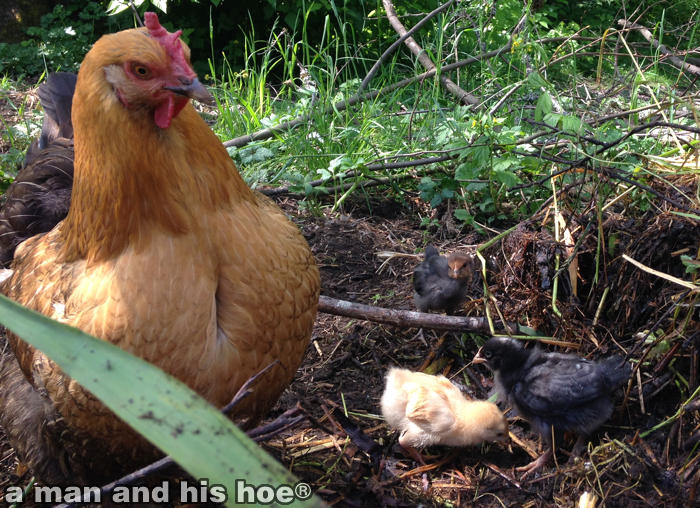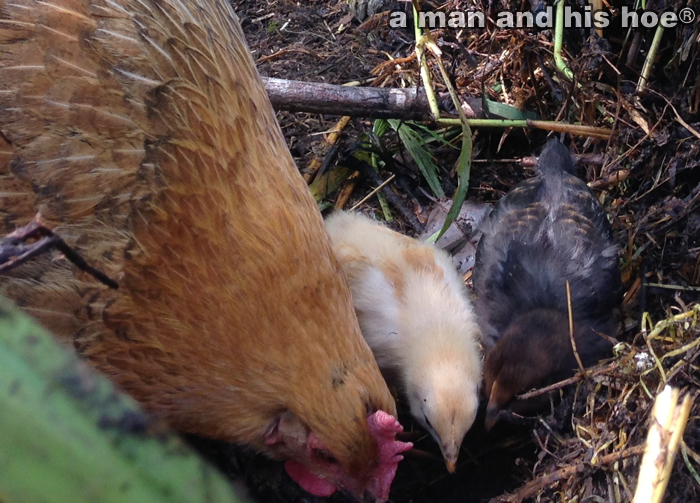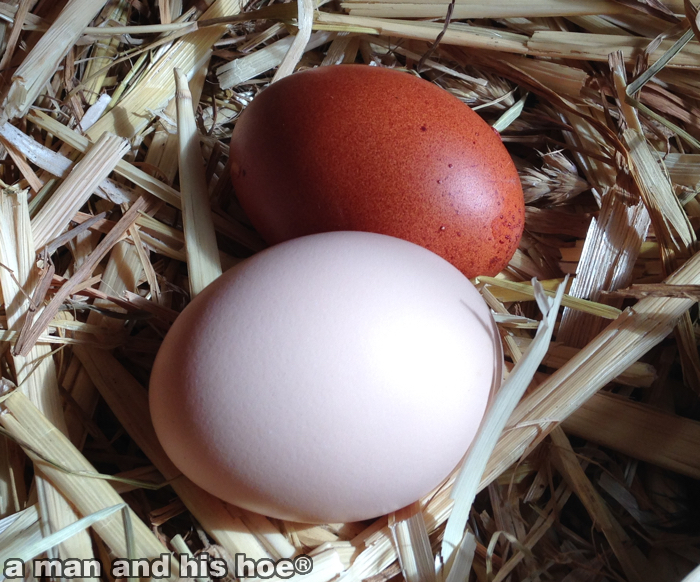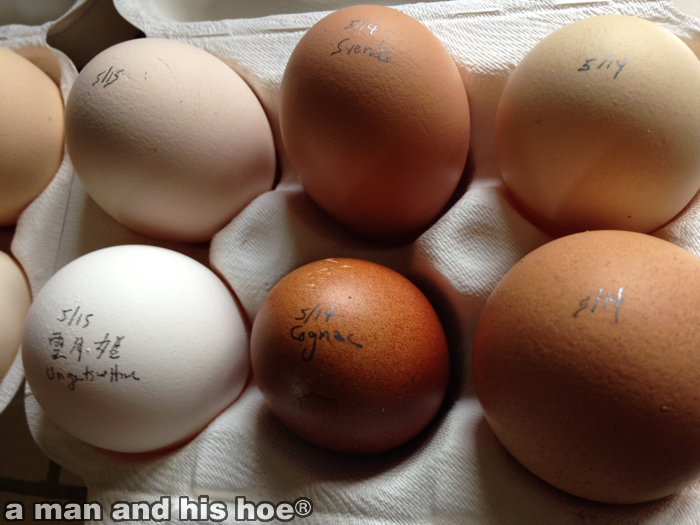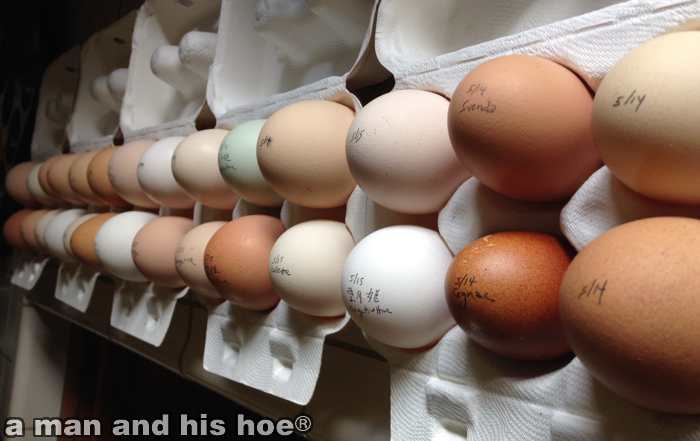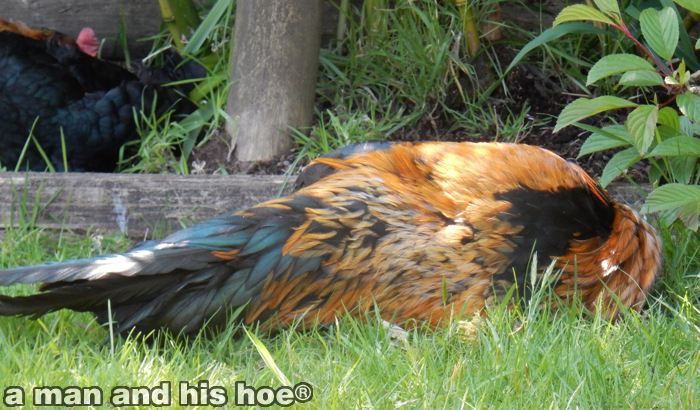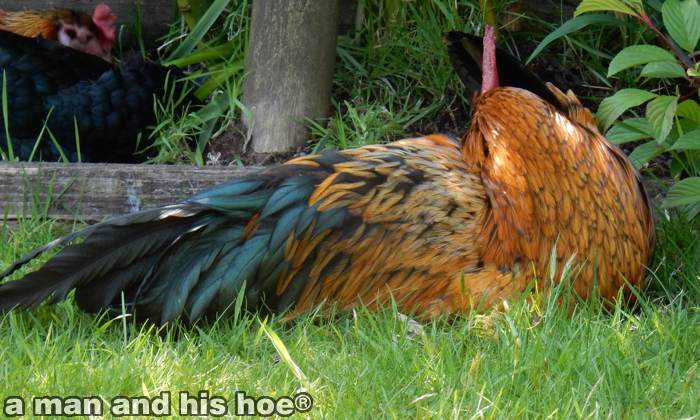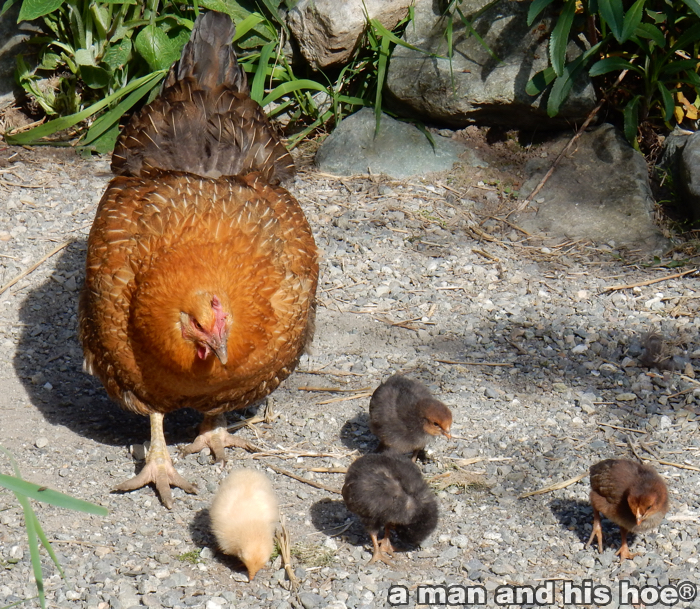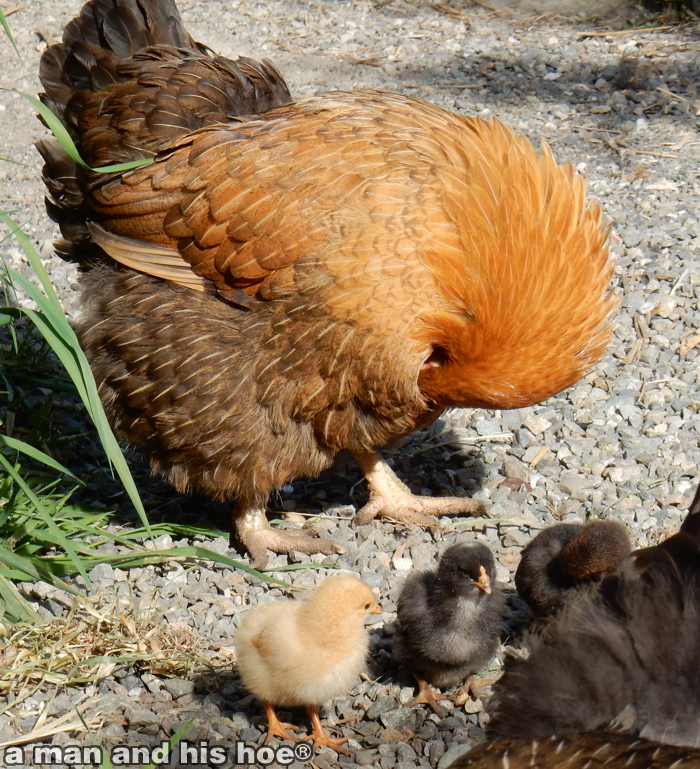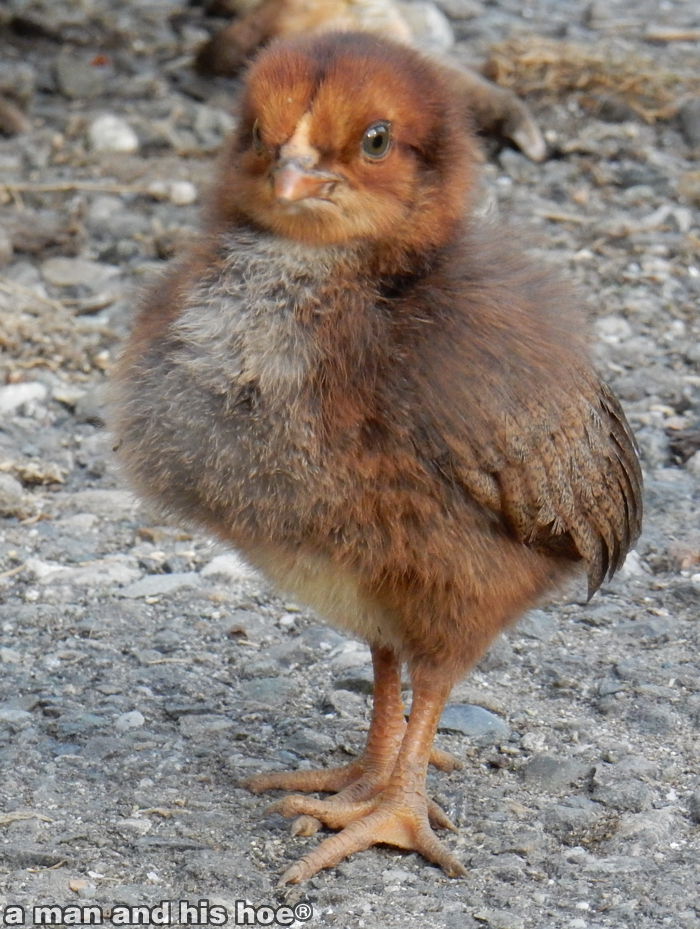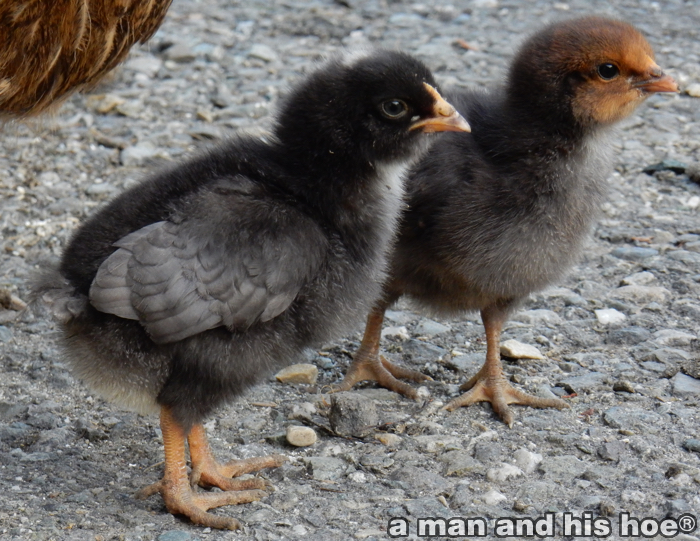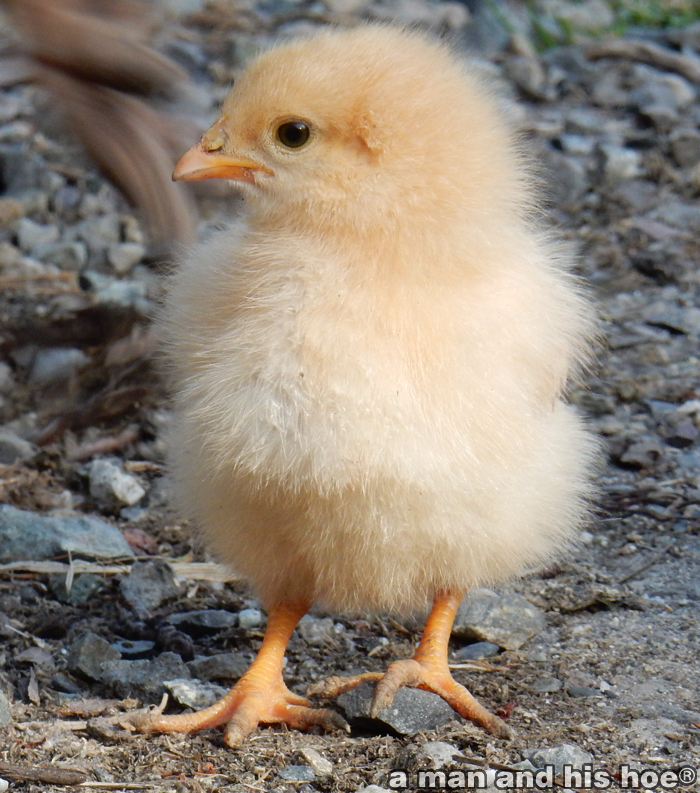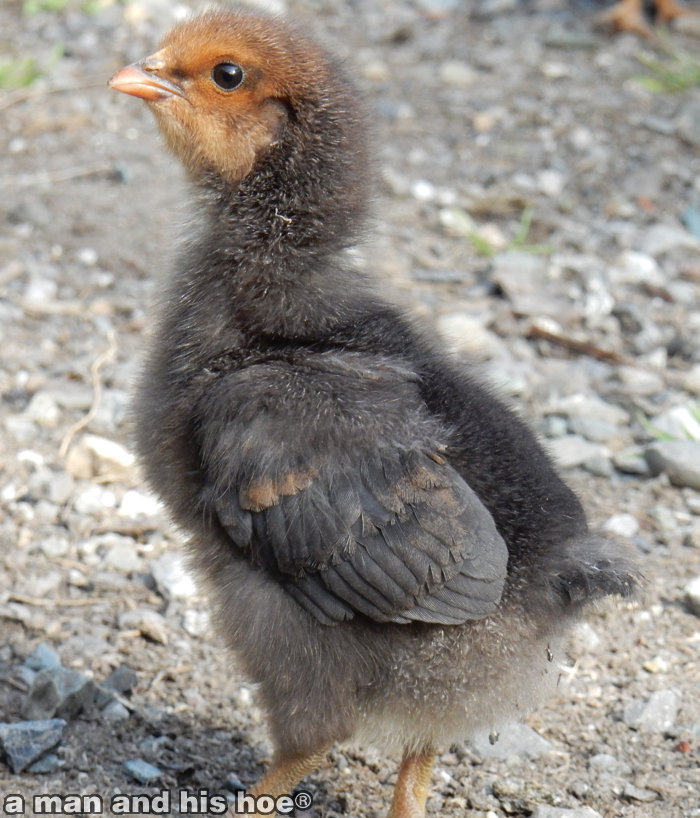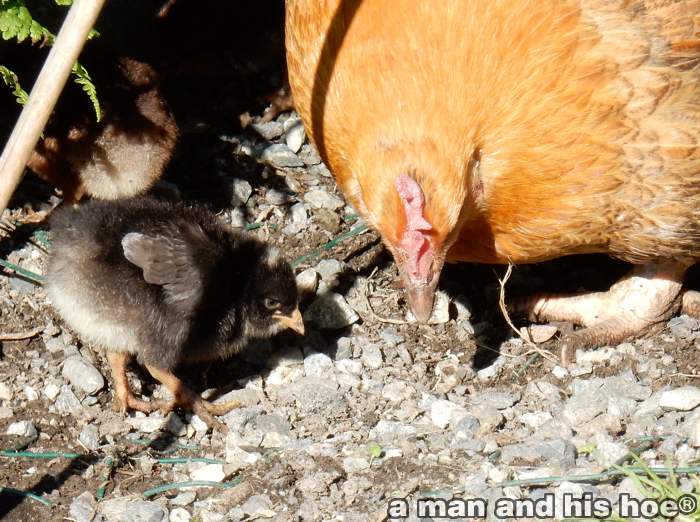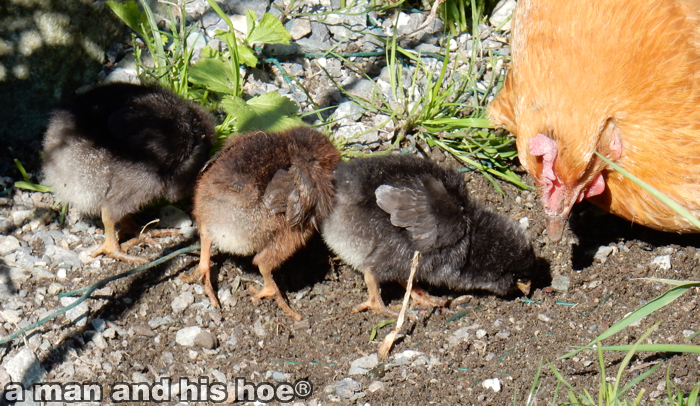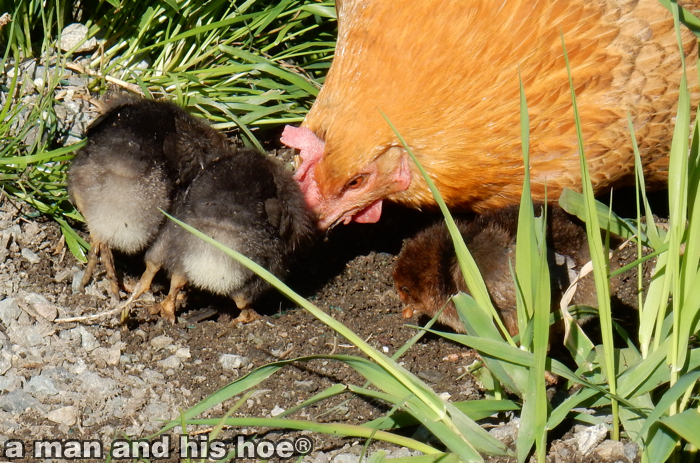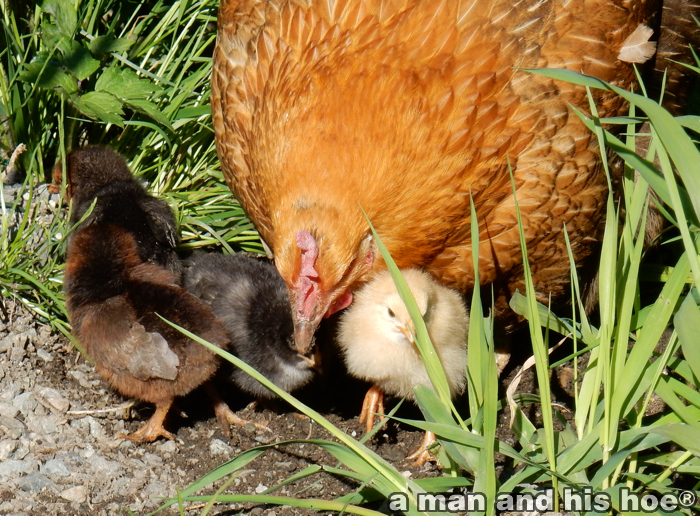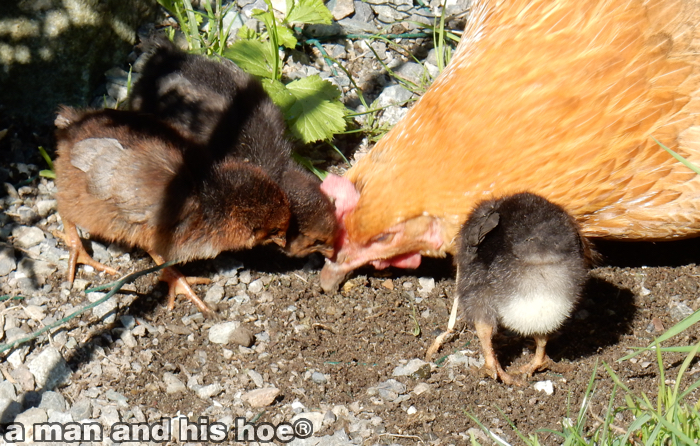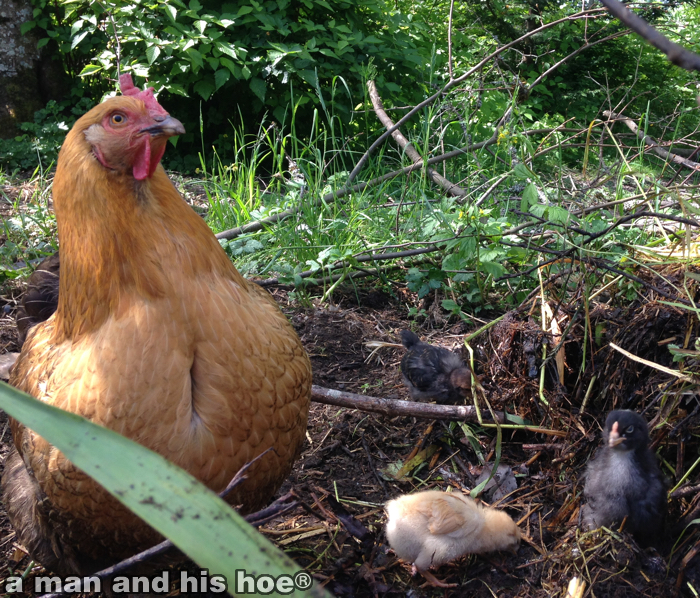
Gone for most of yesterday and all night, we returned this morning to find the compost bin was overheating. It was up to 150ºF (65.5ºC), and at temperatures above that, the beneficial organisms die off. Miasa-hime brought her chicks over to help when she saw I was turning over the compost pile. I’m pretty thorough when I do this, taking the pile apart and rebuilding it by putting the parts that were on the outside in the middle, and putting the hot parts on the outside, and fluffing it all up so that air gets into all parts of the pile. Plants are counting on me supplying them with billions and billions of aerobic bacteria and fungi when the compost is done.
It’s an opportunity for Miasa-hime and her chicks to find plenty of good things to eat. There are so many tiny creatures stirring about in the compost, the chicks have a feast. If they miss something, she’ll point it out to them.
